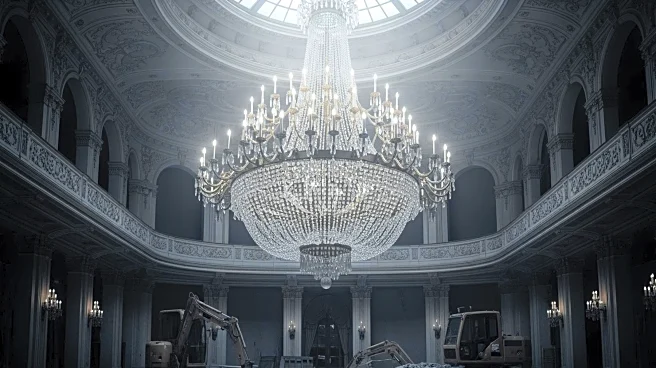What's Happening?
Senator Ruben Gallego, a Democrat from Arizona, has expressed criticism regarding President Trump's plans to construct a ballroom and demolish the East Wing of the White House. In an exclusive interview
with 'Meet the Press,' Gallego voiced his concerns over the proposed changes to the historic building. The senator's comments come amid broader discussions about the administration's priorities and spending decisions. The planned demolition and construction have sparked debate over the allocation of resources and the impact on the White House's historical integrity.
Why It's Important?
The proposed changes to the White House have raised questions about the administration's spending priorities, especially during a time of government shutdowns and budget constraints. Critics argue that the focus on constructing a ballroom may divert attention and resources from more pressing issues affecting the nation. The debate highlights the tension between preserving historical landmarks and adapting them to modern needs. The decision could have implications for public perception of the administration's commitment to fiscal responsibility and historical preservation.
What's Next?
As discussions continue, stakeholders including lawmakers, historians, and the public may weigh in on the proposed changes to the White House. The administration may face pressure to justify the expenditure and address concerns about the impact on the building's historical significance. Further debates in Congress could influence the final decision, potentially leading to revisions or halts in the planned construction.
Beyond the Headlines
The controversy over the White House ballroom reflects broader issues of governance and public trust. It raises ethical questions about the use of taxpayer money for projects perceived as non-essential. The decision could set a precedent for future administrations regarding alterations to national landmarks and the balance between modernization and preservation.










